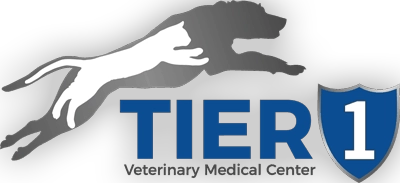As we prepare for our Christmas and holiday celebrations, there are our 4-legged revelers to bear in mind while planning our festivities. Here are a few precarious party stoppers to avoid, so you keep your holiday merry and bright.
Poisonous Plants
Poinsettias
Perhaps one of the most recognized holiday hazards for pets, this festive plant can irritate the mouth and gastrointestinal tract, resulting in ulcers in the mouth, vomiting, and diarrhea when consumed by animals.
Mistletoe
If your pet eats mistletoe, they won’t get a kiss. Instead, they could get gastrointestinal irritation (nausea, vomiting, diarrhea, abdominal pain), and in severe cases, abnormal heart rate, collapse, hypotension, disorientation, seizures, and/or death.
Holly
The spiny leaves can damage or irritate the mouth, and the toxins from the plant can cause gastrointestinal upset resulting in vomiting and diarrhea.
Amaryllis
This pretty little flower, as with most other plants, can cause drooling, vomiting, diarrhea, and lack of appetite. It can also cause depression and, in severe cases, tremoring.
Tree Decorations
Tinsel
This holiday decorating staple is an extremely tempting toy for cats and kittens but can cut up their intestines or get stuck, in which case a very expensive surgery would be necessary. Also, avoid popcorn and cranberry strings for the same reason.
Ornaments
Dangly, sparkly decorations in general scream play toy to dogs and especially cats, but they are classic holiday hazards for pets. Try wrapping the wire hanger around the limb a few times so it can’t be batted or booped onto the floor and into the game.
String Lights
These twinkling beauties pose a unique draw and danger to your pets. Animals find them just as mesmerizing as we do, and they may play with or even chew on the strands, which cause burns to the mouth and a life-threatening build-up of fluid in the lungs.
Edible Endangerments
Meaty Treats
Turkey, ham, prime rib, seafood, whatever your Christmas pleasure — don’t let it be a pain for your pet. Rich, high-fat meats cause vomiting, lack of appetite, diarrhea, and abdominal pain. If it happens to “fall” off the table, keep it to white meat turkey or keep it to yourself.
Chocolate
Be watchful with your stockings, stuffers, and Christmas treats for Santa. Chocolate can cause gastrointestinal upset and, in higher doses, seizures, abnormal heart rhythms, and death.
Alcohol
Drink glasses neglected at parties may be a tempting treat for a sneaky pet. Be watchful and know how to recognize the signs of alcohol toxicity in an animal as an urgent medical intervention may be needed. Signs of toxicity may consist of stumbling, disorientation, and vomiting, which can result in aspiration pneumonia, low respiratory rate, and low body temperature. In severe cases, animals over-imbibing over the holidays can experience seizures and die.
Fruitcake
They may be a holiday folly, but they are also a faux paw for your furry friend. Foods like fruitcake, which contain grapes, raisins, and currants, can cause kidney failure, dehydration, and death. Keep it to people or better yet, just keep it.
There are plenty of holiday hazards for pets this time of year; putting on a party just raises the stakes. If your animal is acting “off” at all, consider a check-up with your vet, and know that Tier 1 will be open until midnight every weekday, including Christmas and Christmas Eve, and open 24 hours on the weekends if you need help.
Tier 1 Veterinary Medical Center in Palmer is Alaska’s only comprehensive animal hospital. We are available by appointment, in addition to accepting emergencies and walk-ins. With CT, MRI, and Ultrasound available on-site, our facility provides advanced treatment options for your pet. Contact us today to schedule an appointment.
